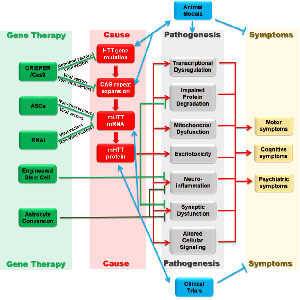The Advances in Gene Therapy Research for Huntington’s Disease
Main Article Content
Abstract
Huntington's Disease (HD) is a debilitating neurodegenerative disorder characterized by progressive motor dysfunction, cognitive decline, and psychiatric symptoms, resulting from the expansion of CAG repeats in the HTT gene. The aggregation of mutant huntingtin (mHTT) protein is central to HD pathogenesis, leading to widespread neuronal dysfunction and eventual cell death. Advances in in vitro modeling and drug screening methodologies have significantly contributed to understanding and potentially mitigating HD's effects. In vitro models, particularly those involving induced pluripotent stem cells (iPSCs), enable detailed exploration of HD's molecular mechanisms, facilitating the development of targeted therapeutic strategies. The integration of these approaches, alongside comprehensive timelines detailing the disease's progression and intervention windows, is summarized in this review in the light of providing systematic info for advancing the development of effective treatments.
Article Details

This work is licensed under a Creative Commons Attribution 4.0 International License.
